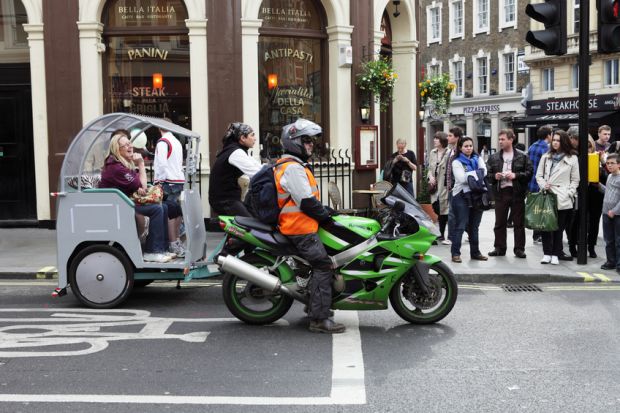Teenagers from the most advantaged backgrounds are up to 16 times more likely to win places at the UK’s leading universities than those from the most disadvantaged neighbourhoods, according to new data.
The first-ever release of Ucas data at institutional level shows that the University of Cambridge admitted only 65 18-year-olds from the UK’s most disadvantaged neighbourhoods in 2015, while it gave places to 1,260 learners from the most advantaged backgrounds. Taken as a proportion of the total size of these groups, this meant that the most privileged students were 16 times more likely to win a place.
At the University of Oxford, the most advantaged students were 14 times more likely to win a place, while at both University College London and the University of Bristol the most privileged teenagers were about 12.5 times more likely to be admitted.
The overall ratio for the Russell Group of highly selective institutions was 7.7, but this remained significantly higher than the UK-wide average of 2.45. At providers with the lowest entry standards, the most privileged students were only 12 per cent more likely to get in.
The data, published on 9 June, reveal the admissions records of 132 higher education providers, split by the gender, ethnicity and socio-economic background of applicants.
It reveals that white students are now under-represented at nearly half of all UK universities, reflecting how white 18-year-olds are less likely to enter higher education than teenagers from any other ethnic group.
But white teenagers remain significantly over-represented at several of the prestigious institutions, where black students are significantly under-represented. White students are nine times more likely than black students to be admitted to the University of Edinburgh, and four times more likely to go to Newcastle University.
Amid growing concern about the under-representation of men in UK higher education, the Ucas data show that women are more likely than men to enter nearly nine out of 10 universities.
Les Ebdon, the director of fair access to higher education, said that the data would “help us identify those with the furthest still to go” on admissions equality.
“Some universities will clearly be very challenged by these data, and I expect them to work hard to understand the discrepancies between applications and offers made for certain groups,” Professor Ebdon said. “I do not accept that an applicant’s ethnicity or where they come from should be a barrier to attending university.”
However, universities highlighted that admissions data do not take account of students’ predicted grades or the competitiveness of the course they applied to. Ucas also released figures on universities’ offer-making practices, which took these into account, and said that on this basis offer-making was “broadly fair”.
Wendy Piatt, the director general of the Russell Group, said that the Ucas data “show no evidence of bias within the admissions system”, arguing that a “much wider range of factors” lay behind under-representation and highlighting how member institutions would spend £243 million on tackling the issue in 2016-17.
“We can…see that real progress has been made as 18-year-olds from disadvantaged backgrounds were 39 per cent more likely to enter more selective universities in 2015 than in 2011,” Dr Piatt said.
A Cambridge spokeswoman said that the university “assesses a package of evidence of academic abilities and potential to succeed on the course applied for, none of which is taken into account by these statistics”.
Register to continue
Why register?
- Registration is free and only takes a moment
- Once registered, you can read 3 articles a month
- Sign up for our newsletter
Subscribe
Or subscribe for unlimited access to:
- Unlimited access to news, views, insights & reviews
- Digital editions
- Digital access to THE’s university and college rankings analysis
Already registered or a current subscriber?









